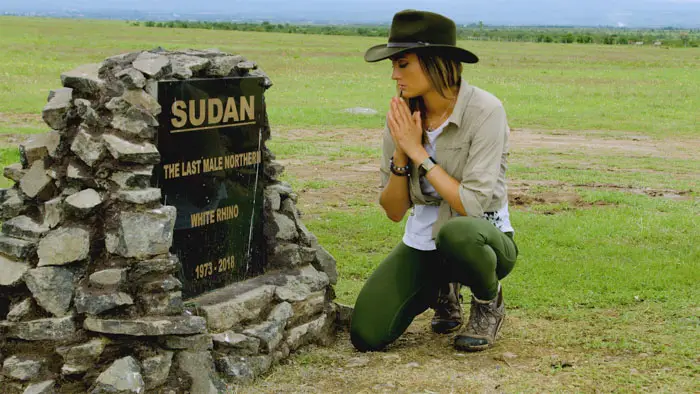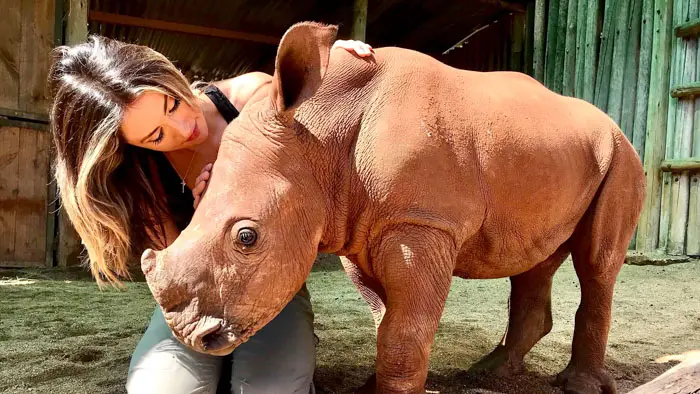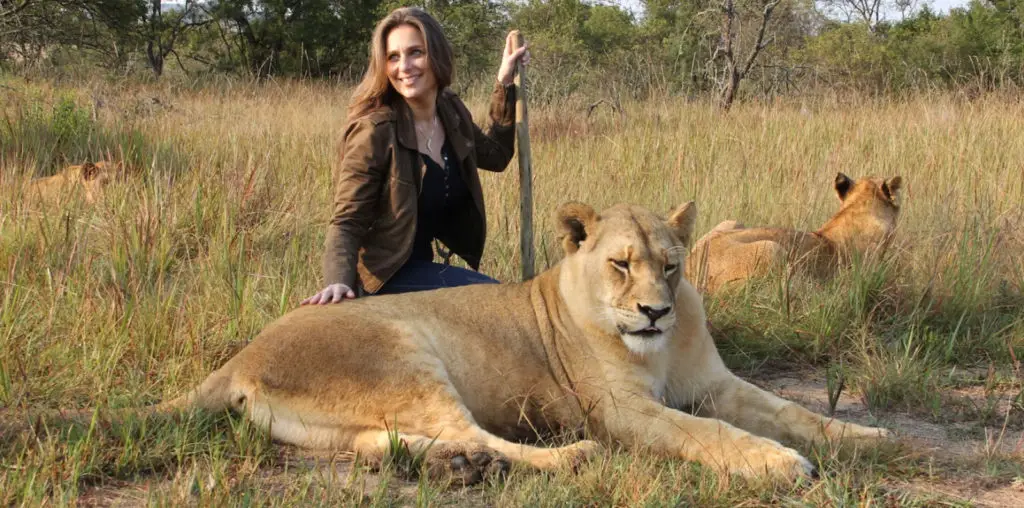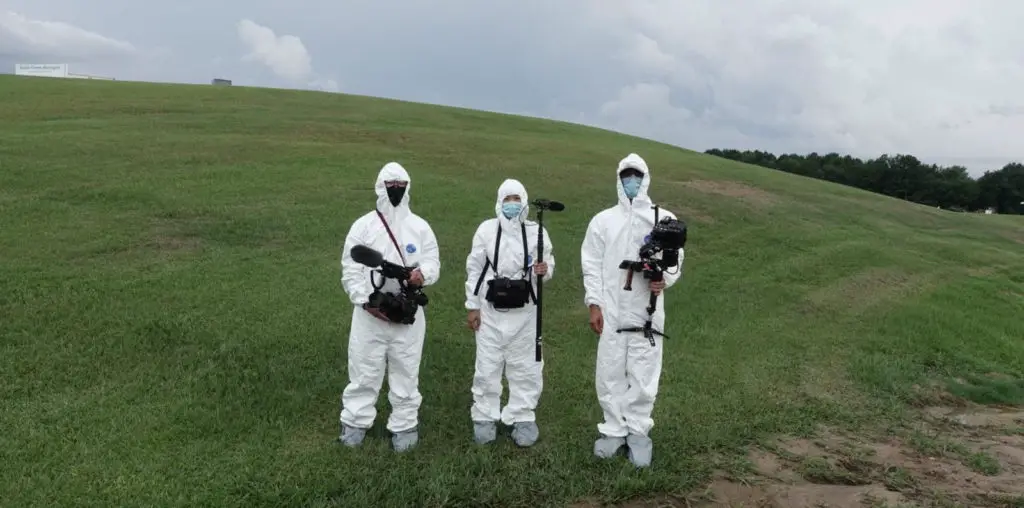
In her feature film, Why on Earth, documentarian Katie Cleary shifts the environmental message from the skies and the climate to the fate of the animals on the ground. Cleary shines much-needed light on the crisis of animal extinction and cruelty while offering some real solutions to the problem.
In the film, Cleary herself is on the ground speaking, observing, and working alongside conservationists across the globe. The documentary opens with the venerable Clint Eastwood reminiscing about the moment his father walked away from deer hunting and taught him to respect and revere the animals around him. This inspired him to advocate for the endangered wild stallion population roaming the plains of the northern United States.
Why on Earth then moves to Indonesian orangutans, who are threatened by the country’s aggressive palm oil industry. As greedy farmers knowingly destroy the natural rainforest of their homeland, the result is the displacement of the orangutans and the killing of any that stand in the way.
In Mexico, conservationists hope to stem the tide of senseless shark killings for nothing more than their fins. Then there’s the brutal war against poachers hunting elephants in Kenya for their tusks and rhinos in South Africa. For the white rhino, we meet the last two remaining females in Sudan. The damage has already been done, and their final hope is in-vitro fertilization, which has yet to be done successfully. Finally, discussions turn to the growing interest in eco-tourism. Replacing a country’s hunting revenues with nature tourism and photo excursions will encourage a new economy that depends on wildlife protection.
Why on Earth then heads to Sacramento, where the battle moves to the state legislature. Cleary follows the fight to pass three pieces of legislation in the Golden State. The first seeks to ban (and hopefully curb) the spoils from trophy hunting around the world by making illegal the possession of furs, heads, and the by-products of over a dozen endangered, iconic animals.

“…shines much-needed light on the crisis of animal extinction and cruelty…”
The battle then moves to the cruelty front as activists seek to ban products that use animals for testing, specifically cosmetic testing. Then the final legislative piece is on the meat industry, emphasizing the virtues of the vegan lifestyle. Vegan advocates extoll their plant-based lifestyle and the moral debate over eating living sentient beings. Cleary interviews an undercover activist who captured some pretty horrific examples of animal cruelty by infiltrating factory farms. In Sacramento, the legislative issue here is requiring schools, prisons, and hospitals to provide plant-based options as part of their meal plans.
Like every environmental documentary, Why on Earth hits the animal conservation issue hard. Director Cleary, with writer Kristin Rizzo, simply presents the facts of what’s happening to the endangered species around the world. The filmmaker also shows how locals are trying to curb the problem.
When it comes to reviewing issues-based documentaries, I’ll admit that I have my own biases and beliefs. This is particularly true of environmental films. Strategically placed throughout are Biblical scriptures speaking to God’s admonition of man to manage the land and the animals. Obviously, we’ve not done a good job of that.
Throughout most of the film, I was completely onboard with its message. That is until we got to Sacramento. I have a healthy mistrust of politicians, and as a lifelong Californian, I have a few strong feelings about our “representatives.” By the end, the film lost me completely on veganism. That segment did very little to provide a persuasive argument for the vegan cause by shaming the eaters of meat.
Ending aside, Why on Earth makes a strong case for protecting our wildlife, focusing attention on growing the population of endangered species, and ending cruel slaughtering practices. Cleary’s footage of the very real problem is captivating in both beautiful and horrific ways. Her film will embolden defenders of animal rights and give something to chew on for those on the fence.
For screening information, visit the Why on Earth Facebook page.

"…Cleary's footage of the very real problem is captivating in both beautiful and horrific ways."



[…] the consequences of local weather change. deforestation – about endangered species worldwide. Alan Ng from Film Risk He writes that, in contrast to comparable documentaries that merely current an issue […]
If you felt ashamed, maybe you should change your actions.
Informative, powerful film and in depth journey on the legacy of these animals. Recommend for all to view this compassionate film.
Powerful, compassionate documentary & bringing animal advocacy…Highly recommend it for all!
This is a vegan movie. Vegans are such simple people. Their ethics only extend to charismatic and photogenic animals. Meanwhile, farmers kill millions of animals in order to clear and prepare land, plant crops, protect them, then harvest, process and transport them. All of our primary industries involve killing things. Human civilisation can’t exist without killing things.
Eco-tourism works in popular, easily accessible, safe places with plenty of animals to see. In remote places, with no amenities and few animals, hunting tourism is the better use for land because in Africa, without hunting income, the land is turned over to cattle and ALL the wildlife is killed. Africa needs both types of tourism, and in the southern hunting grounds, the numbers of ALL hunted animals are going UP not down because ranchers can breed them ahead of the demands from trophy hunting, meat hunting and venison production. I am not a hunter – my interest is in rural economics and the voice of rural people.